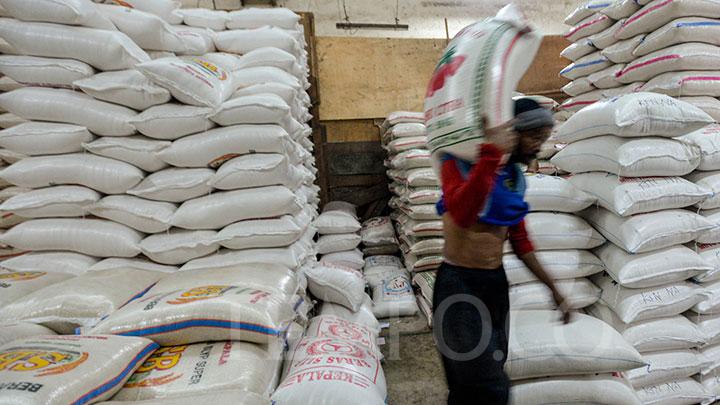
TEMPO.CO, Jakarta - The twists and turns between Trade Minister Muhammad Lutfi and the Chief Executive Officer of the State Logistics Agency Budi Waseso over the plan to import rice is a result of the lack of clarity in food policy. We need a National Food Agency.
IN this country, rice is often seen as a political commodity. However, when ensuring supplies of this staple, politics should not come into play. Transparent and accountable technical considerations must be the ruling guide. Rice imports, if needed, must be seen as a government instrument to guarantee stocks of this staple.
Three indicators can be used to determine whether there is a need to import rice: falling domestic rice production, increasing market prices, and shortage of stocks at the State Logistics Agency (Bulog). Rice is usually imported if the three are met. They can also be used to evaluate the government's plan to import a million tons of rice this year.
Before getting embroiled in a long debate, it is important to realize the plan to import rice is still in the form of a memorandum of understanding between the governments of Indonesia and Thailand. According to Trade Minister Muhammad Lutfi, rice imports will not happen in the short term. President Joko Widodo has also guaranteed there will be no imports of rice before June. Still, politicians have taken advantage of rice import rumors to garner public sympathy. People have automatically loudly opposed the imports before they really understood the fundamentals of the issue.
Are rice imports needed right now? Looking at the first indicator, rice production is currently high because of a good harvest. The Central Statistics Agency (BPS) estimates that production from January to April was 14.5 million tons of rice, an increase of 27 percent over the same period last year.
With this abundant production, rice market prices are falling. According to the BPS, the price of medium quality rice at the beginning of March was lower than the month before, and also lower when compared with the same period last year. Imports are needed if the price exceeds one and a half times the normal value.
Turning to the third indicator, Bulog rice stocks at present are 923,000 tons. This is enough to meet its operational requirements for the next twelve months. However, stocks are relatively low compared to consumption of around 2.5 million tons of rice per month assuming annual per capita consumption of 111 kilograms.
Despite this, it needs stressing that according to Bulog Chief Executive Officer Budi Waseso, around 106,000 tons of rice stockpiles will soon be no longer fit for consumption. This rice is the remainder of 1.8 million tons imported in 2018. This means that Bulog stocks are actually only around 817,000 tons.
Unfortunately, poor public communication by the government resulted in rumors of out-of-control rice imports. Politicians have stoked these rumors for their own interests. The welfare of farmers, often used as an excuse, has actually suffered. The import rumors caused their crop prices to plunge.
Minister Lutfi should have explained the rice import plan in a transparent way from the outset. The public needs to know that as a result of the pandemic, rice stocks in international markets are unstable and there could be occasional shortages. This has the potential to trigger a food crisis. Therefore, the government needs to make preparations, including planning for rice import allocations.
If coordination in the cabinet was good, this fallout between officials would have been avoided. Budi Waseso's objections that Bulog will have problems accommodating the harvest or distributing rice stocks would never have arisen. Furthermore, those problems are not linked directly to rice imports. A number of Bulog's problems are caused by the organization's change of role. Bulog is no longer an organization tasked with holding buffer stocks of rice as it was during the New Order regime.
This polemic has revealed a more fundamental problem: the shambolic nature of our food politics. Ever since Bulog was turned into a public company, meaning it is now a business entity, it has been unable to properly implement its function to balance the interests of farmers and consumers. Bulog used to buy rice when prices fell because of abundant production, or flood the market when prices soared as a result of supply shortages.
Ironically, nothing has been heard of the National Food Agency, a body that should have been established within three years after Law No. 18/2012 on Foodstuffs was passed. This is the body that was supposed to have facilitated coordination on matters concerning food between the three relevant bodies, the ministry of trade, the ministry of agriculture, and the ministry of state-owned enterprises.
Without fundamental improvements to our food politics, the polemic over rice imports will continue being a political game for the elite. Meanwhile, farmer welfare will not improve, and consumer interests will remain unprotected.
Read the Complete Story in Tempo English Magazine























